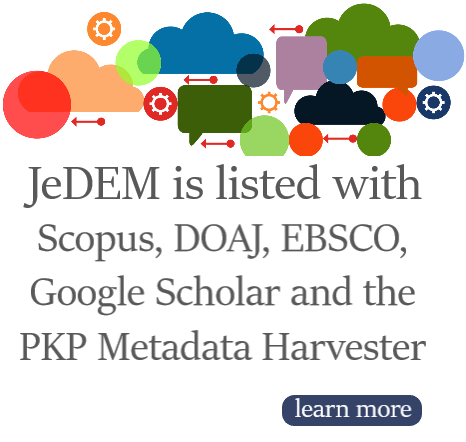Negotiating the Political Self on Social Media Platforms An In-Depth Study of Image-Management in an Election-Campaign in a Multi-Party Democracy
DOI:
https://doi.org/10.29379/jedem.v4i2.150Keywords:
E-democracy, E-campaigning, Expressive Rationality, Image-Management, Late Modernity, Social MediaAbstract
The elections 2010 were the first in Sweden where social media platforms were used to a large extent by politicians and parties in their campaigns. In this paper we follow the liberal parliamentarian Nina Larsson, who in tandem with traditional election campaigning used social media platforms with the guidance of a local communication agency, Hello Clarice. The paper is theoretically grounded in an understanding of our time as late modern, of social media use as expressive and web campaigning as to large extent revolving around image-management. The research question that will be attended to in this paper is how Nina Larsson used social media platforms in her campaign negotiate the image of herself. The methods used for empirical data-gathering are inspired by (n)ethnography, with both participant observation online and offline, interviews as well as content analyses of Nina's social media postings. Results indicate that she used social media platforms to control her political image, to amplify selected text - texts that often originated in offline/broadcast media – and to negotiate a position within the Liberal Party rather than to deliberate with potential voters.
Downloads
Metrics
Downloads
Published
How to Cite
Issue
Section
License

JeDEM is a peer-reviewed, open-access journal (ISSN: 2075-9517). All journal content, except where otherwise noted, is licensed under the CC BY-NC 4.0 DEED Attribution-NonCommercial 4.0 International













